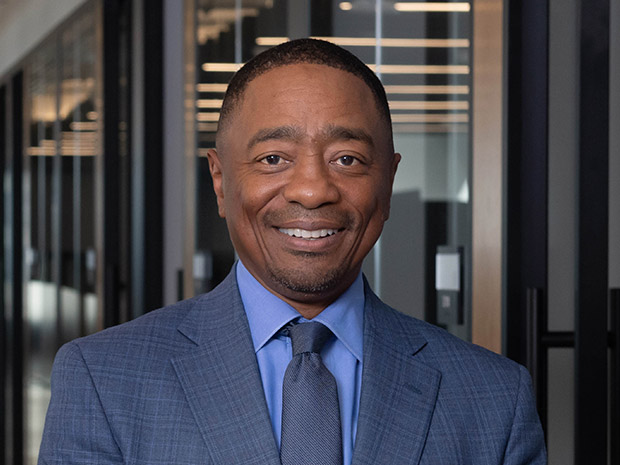RSM facilitates career mobility through an internal job marketplace.
Key takeaways
RSM supports mental health by extending counseling for employees and their family members.
One area of ongoing improvement is better training and tracking of people manager roles.
It’s been more than three years since the pandemic upended society and forced permanent changes in the workplace. Over that time, RSM Chief Talent Officer Ty Beasley says, the firm has gleaned valuable lessons that are helping to refine its overall talent experience.
“We have learned a lot, not just in terms of where and how we work, but the value of focusing on our people’s well-being,” Beasley says. “It's the whole person—and that whole person wants an employer that cares for them as an aspiring professional and as an individual with a personal life.”
RSM has invested in tools such as Virgin Pulse, a health and well-being technology platform that centralizes health care management, along with coaching and data tracking, making those features accessible to employees through a mobile phone app. The firm has added services to support mental health and wellness, extending counseling for employees and their family members.
In today’s competitive marketplace, a more comprehensive approach to the talent experience aligns with the “heightened level of expectation” from employees, Beasley says. Younger workers, especially, seek more flexibility in their career paths, as well as the ability to more quickly gain the skills necessary to move into new roles.
RSM facilitates career mobility through an internal marketplace that allows employees to explore a variety of careers, he says, perhaps shifting from one line of business to another, or from a client-facing role to one that is internally focused, and vice versa. Meanwhile, the firm is expanding offerings for self-paced learning as more workers pursue a DIY approach to upskilling.
“Z’s and millennials … they don’t just want to do one thing,” he says. “We’re building an environment where they can have different experiences.”

We have learned a lot, not just in terms of where and how we work, but the value of focusing on our people’s well-being. It's the whole person— and that whole person wants an employer that cares for them as an aspiring professional and as an individual with a personal life.
A broader worldview
The firm’s middle market focus helps. Beasley says it provides younger employees early exposure to C-level talent that they might not get if they were working in firms that have a different market focus.
“Our people get access to leaders at our clients much more quickly than they would if we focused on Fortune 100 companies,” he says.
Meanwhile, RSM’s hybrid workplace model—which allows employees to manage their own cadence of remote and on-site work based on what is best for them, their teams and their clients—serves as a complement to the firm’s increasingly enterprise-based approach to engagement.
Remote and hybrid workers can bridge geographic boundaries, whether servicing clients across the country or overseas. Consulting was the first area to undertake an enterprise view of people engagement, and then other business units of the firm made the strategic shift as well, Beasley says.
“You have two strategies that came together, and they work,” he adds, in reference to the flexible hybrid model and how the firm engages, develops and deploys its talented professionals.
But the firm is by no means resting on its laurels. One area of ongoing improvement, Beasley says, is better training and tracking of people manager roles, known at RSM as career advisors. These individuals are responsible for performance and career development for the professionals they advise.
“All of the studies and data show that people perform better and are more productive when the people manager construct is done right,” he says. “We have an opportunity here.”
Technology, space and culture
Technological investment—particularly in programs enabling remote collaboration, like Microsoft Teams—has helped enable the hybrid workplace environment to thrive.
“We fast-tracked not just the tools we use to collaborate with our clients, but also the tools we use to collaborate internally,” Beasley says.
He expects more physical changes at RSM’s more than 90 U.S. and Canadian offices, including smaller office footprints characterized by both collaborative workspaces and workspaces designed to support focus and concentration.
Despite many talent initiatives, Beasley says RSM’s longstanding culture has remained intact, noting that firm values such as respect, integrity, teamwork and stewardship are consistently communicated by leadership and fostered through programs such as employee network groups, mentoring and a host of activities focused on local communities. In addition, owners consistently work to bring their teams together.
He cites the high “boomerang rate”—that is, the number of people who resign to pursue other opportunities and then return to RSM.
“We didn’t really need to create something new to sustain our culture,” Beasley says. “Our cultural elements, our expected behaviors of how we collaborate with and care for our people—all of that makes where we work agnostic.”

